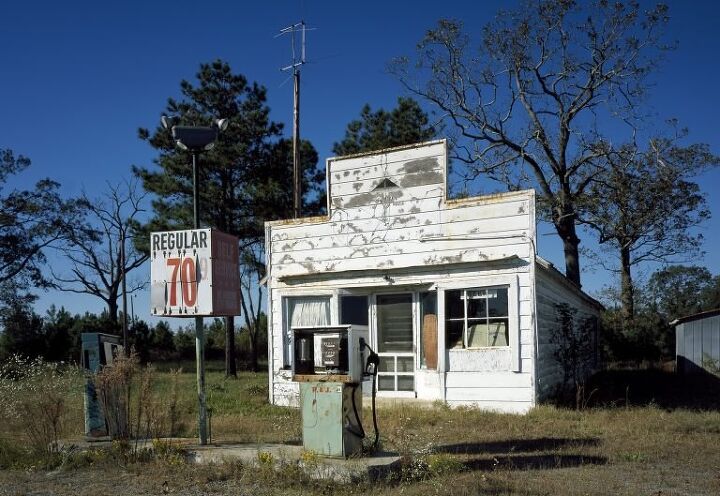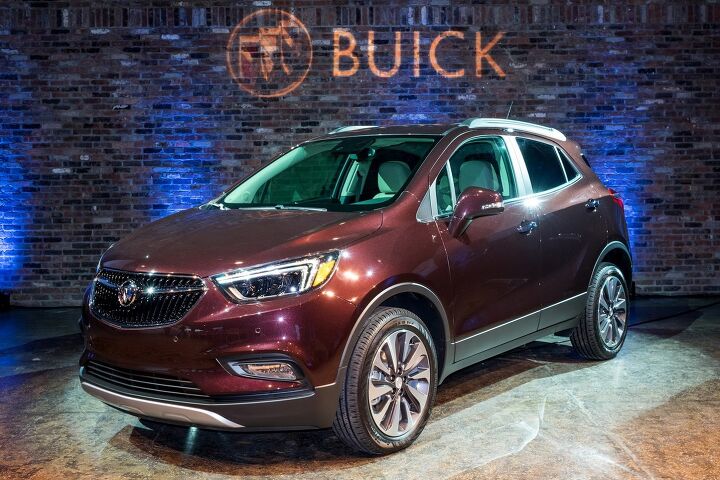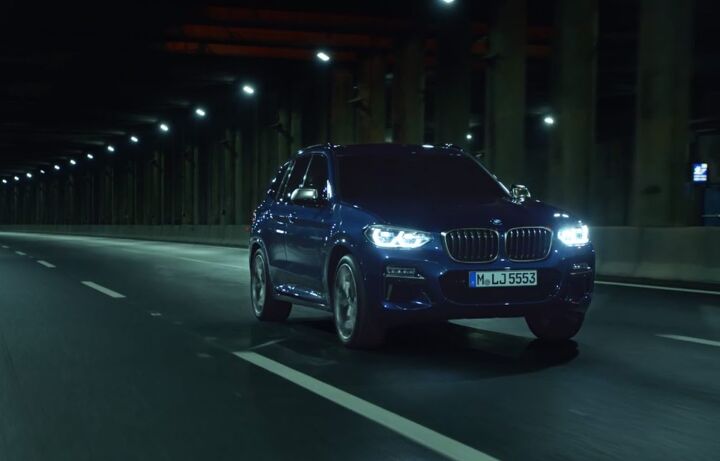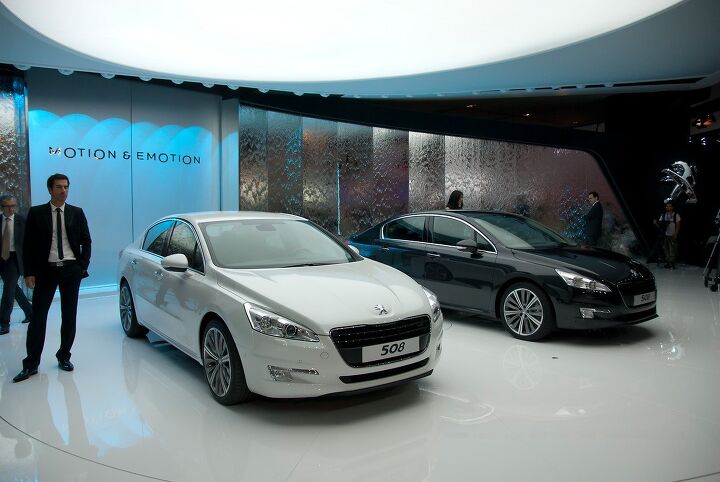#government
America's Gas War Begins
Now that the Environmental Protection Agency has officially confirmed its intent to roll back Corporate Average Fuel Economy (CAFE) standards, the opposition has kicked things into high gear, mobilizing for the coming battle.
In one corner you have the White House and EPA Administrator Scott Pruitt seeking lowered emission mandates. They claim the Obama administration created unfeasible fueling regulations, noting that the public regularly opts for less-efficient trucks and SUVs and largely ignores the purchase of electric vehicles. In the other corner you have a handful of Senate Democrats, environmental groups, and a bunch of blue states led by California lawmakers. They all say the preexisting rules are not only feasible, but essential for the good of the nation.
If you’re wondering which side of the highly partisan issue is correct, we’d argue it has almost everything to do with your point of view. Both sides can make a fairly strong case, and will do just that as the battle heats up. Fortunately, this may not end up being a legitimate civil war — if the California Air Resources Board (CARB) is to be believed.
Fiat Chrysler Can Look Forward to a Big Summer Eco Payout
When Fiat Chrysler Automobiles regails the class with a “how I spend my summer” story this fall, expect some mention of handing over large sums of money to state and federal governments.
The U.S. Department of Justice and California Air Resources Board want the automaker to make things right after accusing it of polluting the nation’s air via its 3.0-liter EcoDiesel V6 engines. Some 104,000 Jeep and Ram vehicles from the 2014 to 2016 model years contained emissions control devices not revealed to the Environmental Protection Agency, which came down hard on the automaker after their discovery. According to FCA’s lawyer, the settlement could come this summer.
What does the DOJ want? According to an earlier settlement offer sent to the automaker, the levelling of “very substantial civil penalties” is the only way to ensure FCA learns its lesson.
Angry South Korean GM Workers Trash Executive Offices Over Missing Bonuses [Video]
General Motors workers in South Korea forced their way into company executive offices on Thursday, destroying furniture in response to news that the automaker’s local unit told employees there will be no bonuses due its ongoing cash crisis.
Based on video evidence, the incident itself was weirdly organized, with just a hint of underlying fury. As tables were carefully moved out of the office, perhaps to be destroyed elsewhere, union members tossed chairs, glasses, and the CEO’s various knickknack to the ground. There was also some light smashing of a cabinet and the trampling of a blazer, which was later carefully dusted off and removed from the room by an employee. The whole affair was closer to the hiring of a budget moving crew than a full-blown riot.
The NHTSA Might Finally Get That Lead Administrator It's Been Missing
It’s been over a year since the National Highway Traffic Safety Administration had someone officially running the show. While plenty of political appointments have been held up by Senate approval, the NHTSA is one President Trump has neglected since taking office. Former General Electric executive Heidi King has been the Deputy Administrator since September, and will be the one Trump taps to assume overall leadership of the agency. It’s about time.
The NHTSA has to cope with the planned fuel efficiency changes, oversee the neverending Takata airbag recalls, and start doing some damage control with autonomous vehicle development. While the recall issues are likely to remain business as usual, the current administration has pursued lax standards for both autonomous safety and corporate efficiency rules — and both have seen growing opposition.
Entire states are already pushing back against the proposed fuel efficiency rollbacks and there have been two fatalities involving self-driving and semi-autonomous technology within the last month. Because of this, promoting King might be a wise choice. Her corporate ties have some people concerned she’ll go easy on businesses, but at least she already has some experience in dealing with the big issues.
The British Car Market Is Flushing Itself Down the Loo; Industry to Follow?
After four years of consecutive growth, the United Kingdom’s automotive market has tanked for 12 months straight. The culprit is, of course, dwindling diesel sales.
Thanks to European governments latching onto the fuel as the cleaner alternative to “petrol” throughout the 1990s (subsequently incentivizing the fuel as a way to meet aggressive CO2-reduction targets), diesel-powered autos accounted for roughly half of all new auto sales between 2009 and 2017 . But diesel is now “evil” and everyone in Europe has started avoiding it.
In March, diesel sales declined by 37.2 percent — leaving the once dominant fuel with just 32 percent of the new car market. Unsurprising, as the new trend in Europe is the widespread (future) banning of the fuel in city centers. April’s sales are expected to be even lower, as the British government’s new taxes on diesel vehicles come into effect. Those fees and a weakened pound, which practically everyone has attributed to Brexit, forced new car sales in the UK down by 16 percent.
Triumph or Tragedy? EPA Officially Sides With Automakers on Fuel Economy Rollback
It looks as if the United States will find out if softened fuel economy targets will transform the domestic market into a haven for automobiles with exquisite powertrains or an antiquated dinosaur with garbage cars making use of old, pollution-friendly tech.
As predicted, the Environmental Protection Agency officially announced its intent to roll back Corporate Average Fuel Economy (CAFE) standards this week. On Monday, EPA head Scott Pruitt indicated his agency would begin the formal regulatory process with the Department of Transportation’s National Highway Traffic Safety Administration (NHTSA) to lower the existing MPG rules.
For the most part, Pruitt avoided diving deep into the NHTSA’s past claims of larger vehicles being safer and the manufacturing pitfalls associated with rushing cutting-edge technology to market — two issues we expected to be addressed. Instead, he left the announcement rather basic by stating the Obama-era rules were “not appropriate and should be revised.” The cornerstone of the EPA’s argument is that Americans simply aren’t buying more efficient automobiles, despite their current availability, and automakers have grown concerned with meeting CAFE standards after 2022.
“The Obama administration’s determination was wrong,” Pruitt said in a statement. “Obama’s EPA cut the midterm evaluation process short with politically charged expediency, made assumptions about the standards that didn’t comport with reality, and set the standards too high.”
EPA Readies Rollback of Fuel Efficiency Regulations
Rumors are flooding in that U.S. Environmental Protection Agency Administrator Scott Pruitt will sign a declaration upending the Obama-era fuel economy regulations any day now. New details have emerged claiming Pruitt plans to visit a Chevrolet dealership in Virginia to publicly condemn the existing 2025 targets as unrealistic. Reportedly scheduled for next Tuesday, the EPA head will be accompanied by groups representing both automakers and car dealers.
California is going to be furious.
GM Korea Threatens Bankruptcy If Union Doesn't Budge
South Korea’s powerful labor unions have the ability to make vehicle assembly a non-starter, and the country’s workers have been known to strike like it’s going out of style. Just ask Hyundai about that.
As it seeks to bring its operations in the country back from the brink, General Motors would prefer to see its workers’ union bend to its will, agree to the concessions demanded of it, and generally get out of the way. This isn’t happening, so GM’s now playing hardball.
Agree to our cost-cutting plan, the automaker says, or GM Korea declares bankruptcy.
Light It Up: Canucks to Mandate Taillight Illumination
It’s a problem — one I’m sure you’ve witnessed. A hapless driver, plodding along a darkened highway with no taillights illuminated, mistakenly thinking their lights are on thanks to a bright dashboard and flaccid daytime running lights.
High on poutine and maple syrup, Transport Canada is having no more of it, announcing a new mandate requiring all new cars sold in the Great White North to have extra illumination starting in 2021.
The initiative also proves that someone within the Canadian government has a sense of humour, as Transport Canada says they’re going “ghostbusting to target phantom vehicles.” Break out the ECTO-1!
Extensive Probing Continues In Germany
While companies are often found guilty of sketchy and illicit behavior, it’s becoming increasingly difficult not to feel some measure of sympathy for German automakers. The same goes for the government officials whose job it is to repeatedly raid the homes and offices of people employed by those manufacturers. Once gain, German prosecutors have searched both Volkswagen and BMW over diesel-related shenanigans.
Volkswagen saw 13 of its offices raided in Wolfsburg throughout the month of March. Braunschweig-based authorities seized physical and digital files in the hopes of catching the automaker in a lie from 2015. At the time, VW claimed an in-house investigation found it had understated fuel consumption and carbon dioxide emissions on no more than 36,000 vehicles. Considering the diesel emissions scandal affected far more vehicle than this, as well as the company’s much higher earlier estimate, prosecutors hope to catch the company out.
Meanwhile, BMW saw its facilities searched over suspicions that it employed a defeat device to circumvent diesel emission testing. The automaker said authorities were looking into “erroneously allocated” software on the BMW 750d and BMW M550d.
It's Gonna Be a Showdown: EPA Head Says California Won't Drive U.S. Fuel Regulations
The Trump administration’s chief environmental regulator claims the Environmental Protection Agency will not pursue stricter fuel economy mandates after 2025. EPA Administrator Scott Pruitt also said California won’t call the shots for the rest of the country just because it can set its own rules on emissions.
“California is not the arbiter of these issues,” he said. Currently, California and 16 other states have pledged to maintain Obama-era emission when federal regulators decide to roll them back “but that shouldn’t and can’t dictate to the rest of the country what these levels are going to be,” according to Pruitt.
Stick that in your tailpipe, one-third of America.
Paranoid of the Government? BMW's Got Your Back
As sometimes happens, there’s a war brewing in the heart of Europe. This one isn’t like the others, though — instead of nation versus nation, it’s a case of lawmakers versus privately owned vehicles, primarily those of the diesel persuasion.
So eager are some city governments to ban the operation of diesel-powered cars and trucks in or near urban centers, BMW Group has taken the unusual step of issuing a promise. In a bid to allay fears of new (or newish) vehicles becoming useless to their owners, the automaker claims it will let German lessees return their diesel vehicles and switch to a gas-powered model.
Don’t worry about the government, BMW wants its customers to know. Just enjoy that compression ignition engine while you can.
Canada's Largest EV Market Quietly Rolls Back Massive Government Subsidy (Again)
Ontario, that strange land located between Detroit and Buffalo (and elsewhere, too) became the largest Canadian market for electric vehicles in 2017. There was good reason for it, too. Imagine walking into a dealer showroom, eyeballing a flashy luxury car, and suddenly your local political representative rushes in and hands you a check for $14,000, no strings attached.
Thanks, fellow taxpayers!
This subsidy is what buyers of Tesla Model S and X vehicles, retailing for over six figures (Canadian MSRP), enjoyed in Ontario until very recently. It’s important to note, though maybe not to certain folks, that the province holds the world’s largest sub-sovereign debt, most recently tagged at $311 billion, and pays over a billion dollars a month to service the interest on that debt.
Sorry, Ontario Tesla buyers. The party’s over. Again.
Vehicle Recalls Are Down in the U.S., but Not Everyone's Celebrating
Automotive recalls in the United States dropped to the lowest level since 2013 last year. In 2017, domestic recalls fell to 30.7 million — far less than 2016’s record high of 53 million. That’s good news, right?
Probably. The National Highway Traffic Safety Administration demands manufacturers be Johnny-on-the-spot with fixes ever since General Motors’ ignition switch scandal back in 2014. That means it’s either gotten incredibly lax in its duties under Donald Trump’s watch or automakers simply had a better year. While the NHTSA suffered important staff shortages for literally all of 2017 and has seen the current administration pressing for less regulation overall, the recall decline could also be attributed to the Takata airbag inflator situation finally winding down.
However, it’s no secret that the Obama administration wanted to see the safety administration exercising its regulatory muscle. In 2016, automakers issued a record 924 recall campaigns. That number fell to 813 last year. The NHTSA has also neglected to impose new vehicle safety fines since Trump took office and been operating without permanent leadership for more than 13 months.
What's Standing Between You and a Future Citron or Peugeot? Possibly, a Tariff
The threat of new import tariffs has PSA Group worried about its plan to return to the United States. Following President Trump’s proposal to levy a 25-percent tax on steel imports and a 10-percent tariff on inbound aluminum, Europe balked at the suggestion, leading to further threats of a car tariff.
Right now, the U.S. levies a 2.5-percent tax on imported European vehicles, far less than Europe’s 10-percent tariff on vehicle travelling eastward across the Atlantic. There’s a 25-percent U.S. tariff on European vans and trucks, too, which explains why crates of Mercedes-Benz van components sail into the port of Charleston, South Carolina at regular intervals.
According to Trump, any European retaliation against the proposed metal tariffs — which seem all the more likely given yesterday’s resignation of the president’s pro-free trade economic advisor, Gary Cohn — would see the U.S. ratchet up its car tariff. If the scenario comes to pass, your dreams of one day buying a new French car in America could easily be dashed.





![Angry South Korean GM Workers Trash Executive Offices Over Missing Bonuses [Video]](https://cdn-fastly.thetruthaboutcars.com/media/2022/07/17/9015524/angry-south-korean-gm-workers-trash-executive-offices-over-missing-bonuses-video.jpg?size=720x845&nocrop=1)























Recent Comments